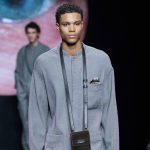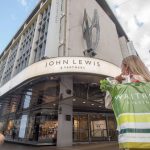The “daigou” phenomenon, which involves agents buying luxury goods abroad to avoid taxes and reselling them in China, has grown into an 81 billion dollar business, marking a 40 percent increase from 2019.
Luxury brands face a persistent challenge from this parallel commercial system. LVMH Chairman Bernard Arnault back in January said in no uncertain terms: “For your image, there is nothing worse (in reference to daigou).
A report called The Daigou Index 2.0 by Shanghai-based consultancy firm Re-Hub and cited by Jing Daily newspaper, underscores the “typical Daigou now is more than likely a large organisation with significant buying power rather than your average Chinese international student making a bit extra on the side.”
Concerns about daigou’s impact have frequently been voiced, with industry experts stating that the parallel market in China could present a significant threat to luxury brands in the coming years.
Despite efforts to combat it, the daigou market continues to thrive. The Chinese middle class is becoming more cost-conscious in their luxury purchases, preferring discounted products from daigou. Additionally, this system aids in introducing lesser-known luxury brands to a broader Asian audience, Jing Daily said.



